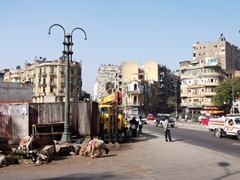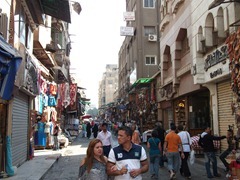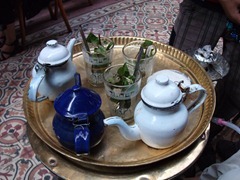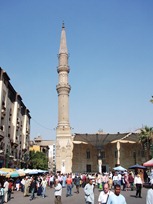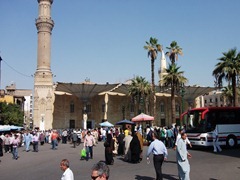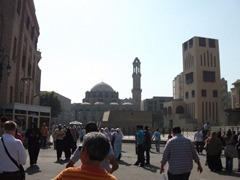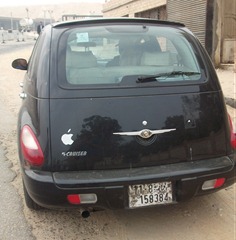A chronicle of my trip to Jerusalem, Cairo and Rome from November 3-18. If you want more information on a picture, hover your mouse over it for a pop-up caption. If you want to see a bigger version of the picture, click on it.
I wrote a couple of days ago about the bout of xenophobia I’d experienced when I first got to Cairo, about how disconcerting it was first for the experience itself, but then doubly for the shame I felt that someone so… enlightened… as myself would have such a visceral reaction to a strange culture. (And for the record, I now feel a third layer of shame in confessing how I see myself to you, but I want to be honest here. Thank you in advance for your grace and forgiveness at my arrogance.)
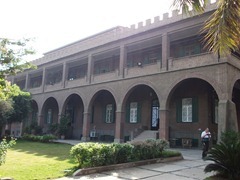 Our last day in Cairo is Monday, November 8 (which is when I’m writing, though you won’t have the chance to read this until at least the end of the week). Because the last five days have been so hectic and crazy, and because Cairo is such a stressful place to be out and about, all three of us have decided to stay in the Institute today to relax and enjoy the peaceful surroundings.
Our last day in Cairo is Monday, November 8 (which is when I’m writing, though you won’t have the chance to read this until at least the end of the week). Because the last five days have been so hectic and crazy, and because Cairo is such a stressful place to be out and about, all three of us have decided to stay in the Institute today to relax and enjoy the peaceful surroundings.
I have to reiterate how much I’m enjoying Dominican hospitality. The fathers here are hilarious and kind – last night they prayed over supper in English and we discussed everything from politics (American and French) to climate change to international travel, all in the midst of much laughter. Saturday night, we got to participate in their week-ending ritual: watching an American blockbuster. This week’s selection: The Expendables. As Jean – a Dominican nearly my own age who knows French, German, English, Japanese and Arabic – explained, “After a long week, you just want to turn your brain off and watch something.”
This morning, I slept in as well as possible given the Cairo traffic and then grabbed one of the books I’m currently reading – Untamed Hospitality: Welcoming God and Other Strangers – and headed to the garden, taking a Pepsi in a glass bottle with me.
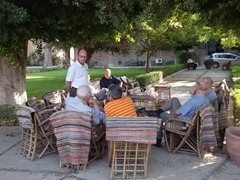 The Switchfoot in my headphones was only occasionally interrupted by horns or sledgehammers from the nearby construction site. I relaxed under the trees, feeling the breeze and the sun, reading or watching the feral cats run all over the grounds, and I felt profoundly at peace.
The Switchfoot in my headphones was only occasionally interrupted by horns or sledgehammers from the nearby construction site. I relaxed under the trees, feeling the breeze and the sun, reading or watching the feral cats run all over the grounds, and I felt profoundly at peace.
After three days of craziness in Cairo, I was struck by the totally different feeling of the Institute. I’m sure it has much to do with the fact that the Institute is run by Westerners, but I the more I reflect, the more I’m sure this is a microcosm of the Church as a whole.
We are to be an island in the midst of the world – a place of safety and refreshment. A place of hospitality where everyone feels welcomed into the mysterious inner life of the Holy Trinity. The Dominican brothers are family to each other, and I am challenged and encouraged by their example. I want to imitate them. I want this kind of a community, one that is intimately bound together in their worship of God. One that is different in almost every way imaginable from the culture around it, yet is still profoundly engaged in that culture.
A note to leave you with: the Dominican who founded this Institute was considered the foremost expert on the Koran in Egypt. Muslim scholars who disagreed would seek him out to settle their debates. Think on this.
As worship experiences go, my day in the garden was a good one. I only wish I’d been able to share it with you.



